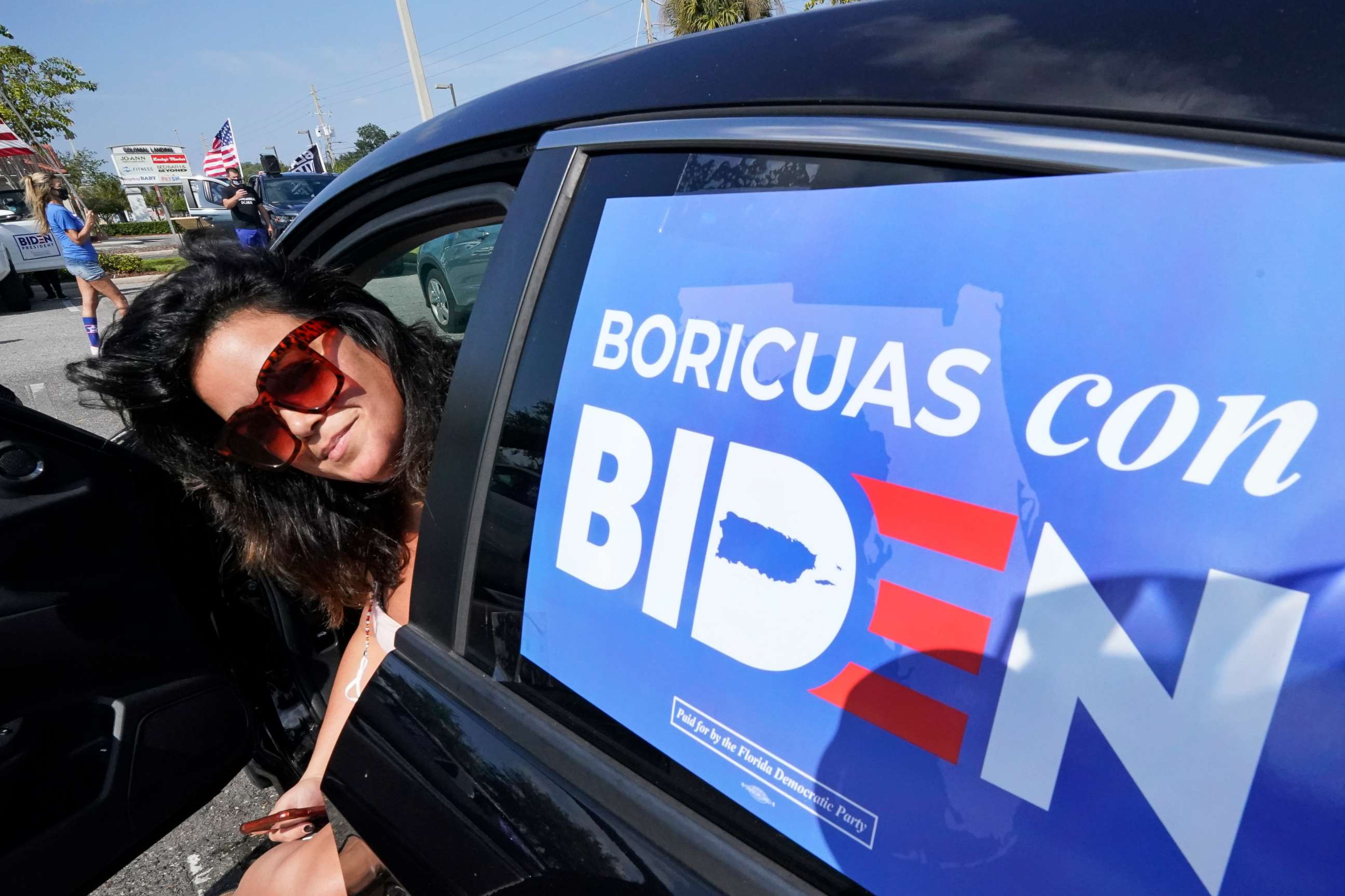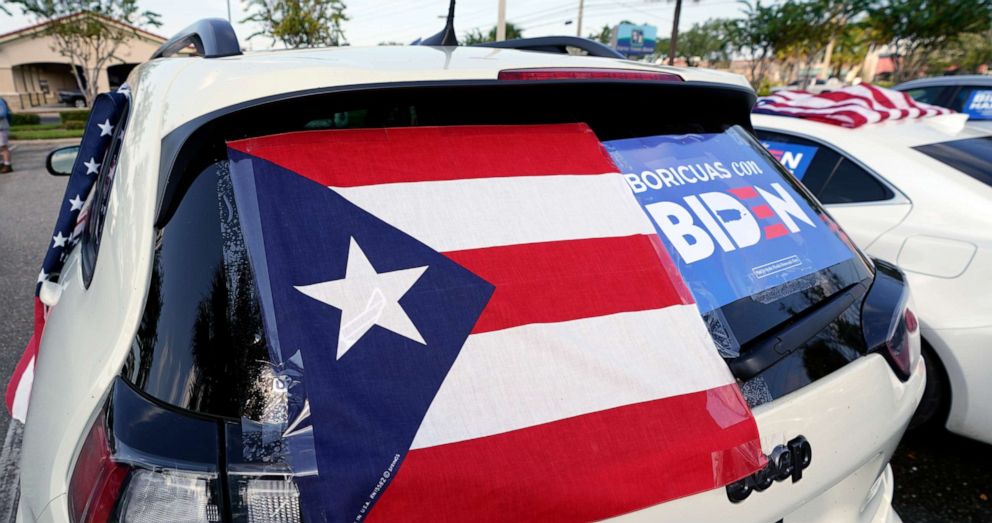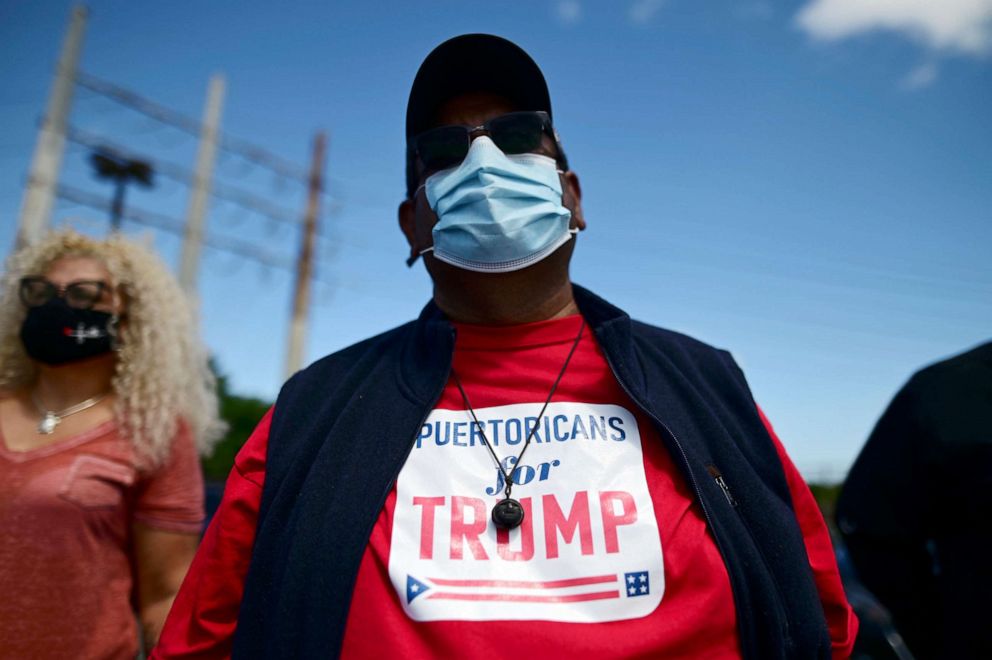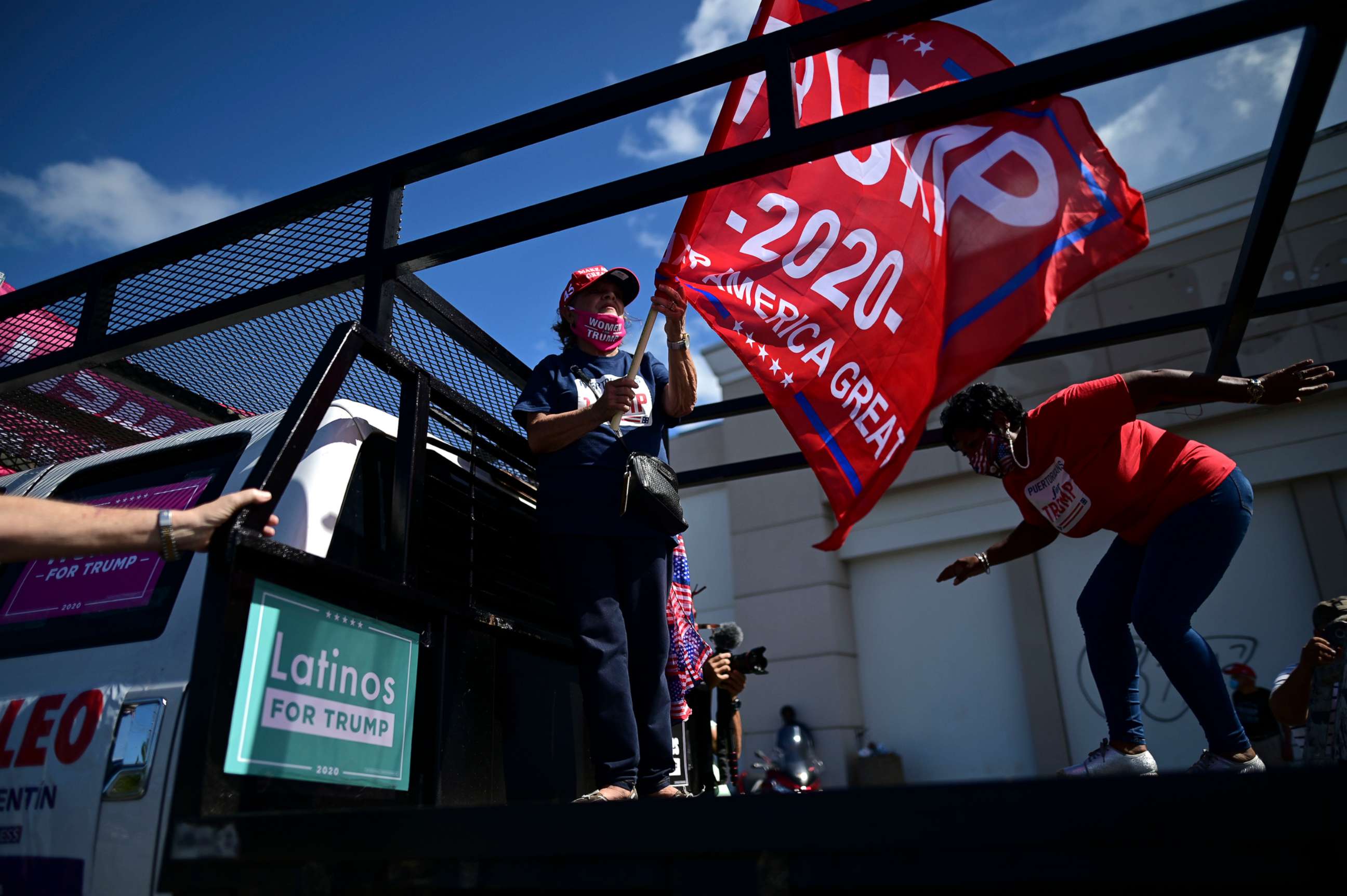Voter turnout among Puerto Ricans rising, not necessarily because of Hurricane Maria: Experts
Candidates must find ways to appeal to both mainland and island voters.
With the election approaching and early voting underway, both Joe Biden and Donald Trump are relying on the Puerto Rican vote in swing states like Florida and Pennsylvania.
For years, voter participation among Puerto Ricans in the mainland hasn't necessarily been high compared to its overall population, according to a 2016 research brief from the Center for Puerto Rican Studies at Hunter College in New York.
A complex electoral system combined with the economic and educational standing of many mainland Puerto Ricans has had a lot to do with lower turnout figures, experts told ABC News.
"People with higher income and higher scholarship tend to participate more in politics than those with less," said Carlos Vargas-Ramos of the Center for Puerto Rican Studies.
Despite historically low numbers of participation, voter turnout among Puerto Ricans in presidential elections has increased recently -- in 2012, nearly 53% voted, up from a low in 2000 of about 46%, the data shows. According to a report produced by the University of South Florida, that figure rose again in 2016 to almost 55%.
While migration can be linked to this increase, experts said spending more time in the U.S. mainland has a significant effect on turnout.

"In political science, it's clear that people who go out and vote tend to be people who have spent a prolonged period of time in a residence," Vargas-Ramos added.
According to the 2016 report, in 2012 about 51% of Puerto Ricans who'd lived at the same address for at least five years voted, compared with 13% of Puerto Ricans who'd live at their current residence for less than a year.
"They have a better understanding of the electoral system compared to those who recently arrived from the island," Vargas-Ramos told ABC News.
Residents still in Puerto Rico can vote in presidential primaries but not general elections, despite being U.S. citizens.

Historically, the island has had three local political parties -- the Popular Democrat Party, which favors ties with the mainland U.S., the New Progressives, who are pro-statehood, and the Puerto Rican Independence Party, which favors independence. The majority of individuals living on the island don't affiliate themselves with a mainland political party.
Migration and voting
The population of Puerto Rico was declining before Hurricane Maria struck in September 2017.
From 2010 to 2017, over half a million left the island, with an estimated 135,000 more fleeing after the storm, according to the Center For Puerto Rican Studies.
"Hurricane Maria just accelerated what was already going on," said Elizabeth Aranda, coauthor of the report "Understanding Puerto Rican Voting in the United States."
Puerto Rico's economy began seeing signs of a recession in 2006, and the island effectively declared bankruptcy in 2016 when President Barack Obama signed a law halting debt payments on more than $100 billion.

"It's been one continual recession," Aranda added. Jobs have been lost, government budgets have been cut, schools have been closed.
"People have continued to come here for jobs for a better quality of life," Aranda said, referring to the mainland.
Both Aranda and Vargas-Ramos agreed that the more time Puerto Ricans spend in the U.S., the more politically involved they'll become.
"The longer they're in the U.S., the more likely they will register to vote and affiliate with a particular political party," Aranda told ABC News.
Types of Puerto Rican votes
In 2017, more than 5.6 million Puerto Ricans lived on the mainland, according to the Pew Research Center. As of 2019, 3.1 million people live on the island, data from the U.S. Census Bureau shows.
While both presidential candidates have addressed issues linked to the island recovering post-Maria, such measures appeal much more to those who recently left the island than to second- or third-generation Puerto Ricans.
"Sadly," Vargas-Ramos explained, "that gives you an idea of the lack of knowledge of the presidential candidates from Puerto Ricans in the United States, when the only way to motivate them to go out and vote is address issues on the island."
It's when Puerto Ricans who left the island "start to see themselves more entrenched in American society" that they start to identify more with mainland issues than those more prevalent among those island dwellers, Aranda said. "There's a point at which people would maybe pivot, and if they don't pivot, then maybe they balance both."

As the number of people leaving the island is expected to increase amid the ongoing economic crisis, further aggravated by the pandemic, the power of the Puerto Rican vote will continue to increase, experts told ABC News.
The rate of growth among Puerto Ricans eligible voters in the mainland grew from 2017 to 2019, a recent study shows.
"I do think that as Puerto Ricans make inroads in their local communities, and then maybe at the state level, that's going to drive them to the polls, for sure," Aranda said. "I think that there has to be a concerted and deliberate intentional effort on behalf of the political candidates to do outreach to the Puerto Rican community, to understand what their needs are, both now and in the future."




